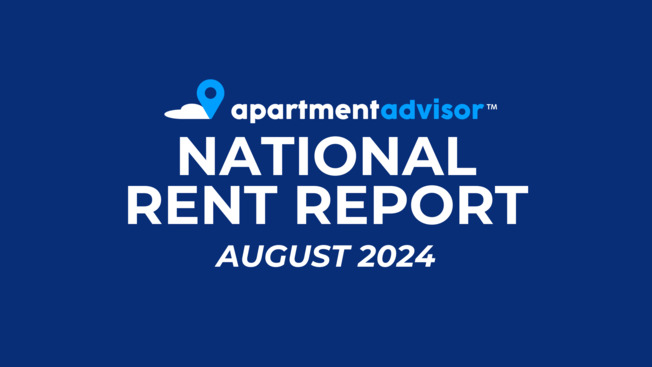
Why Have Less Boston Apartments Been Rented This Year?

By Lilly Milman
Sep 03, 2024
Something is up with the Boston rental market.
For years, realtors, landlords, and renters alike have been telling the same story every rental season: Competition in Boston is steep, inventory is slim, prices go up every year, and you take what you can get when renting. In every iteration of our Most Competitive Rental Markets report, Boston has cracked the top 10 for its sizable price increases, low vacancy, and low average time on market.
Though the market was still plenty competitive this year, there’s some early signs that the tide may be turning in Boston.
Is Boston Renting Becoming Less Competitive?
If you are still contemplating moving in September, you may have more options that you’d expect this year.
There’s More Available Inventory on the Market Than Usual
As of the end of August, a much greater number of apartments with 9/1 move-in dates were still on the market, and that’s unusual. In fact, last year the amount of available inventory on our site dropped by about 29% from June 25 to August 25 (the period which we defined as “peak renting season” for this report). Meanwhile, this year, available inventory only dropped by about 13% over the same period.
As of today (Sept. 3), there are over 2,200 vacant apartments on our site marked as "available now."
Apartments are Sitting on The Market for Longer This Year
Another key indicator of competitiveness is average time on market for units. Many renters in Boston are familiar with the experience of inquiring on an apartment the day it hits rental websites like ours, only to find out an application has been accepted even just a day or two later. For many, this was still the case — though this is another area where our data shows a shift. This renting season, a unit’s average time on market in Boston was about 12% longer than this time last year.
Price Drops are Larger This Year Than in Previous Years
This new reality has meant some property owners have had to adjust their price strategy or risk having a vacant apartment in September.
It’s not unusual to see price drops throughout the summer, especially as some harder-to-rent units at higher price points sit on the market. However, the drops we’re seeing this year are a little more sizable. This year, the average rent decrease for units that had a price drop in the summer months was $201, 27% higher than last year’s average price drop.
So, what’s contributing to this recent trend? It’s likely a combination of factors.
Rents May Be Rising Faster Than the Market Can Handle
For one, property owners seemed to have priced their units higher this year than in previous years, and it’s possible many renters simply can’t keep up. Though Boston renters are no strangers to annual price increases for housing, the increasingly unattainable cost of living and renting has long been a complaint for residents.
According to the U.S. Bureau of Labor Statistics, wages and salaries in Boston only increased at a 3.3% rate over a 12-month period from June ’23 to June ’24. During the same period, median asking rents outpaced this growth: In June ’24, median rents increased by 4.4% YoY for studio apartments, 5.8% for 2-bedroom apartments, and 5.7% for 3-bedroom apartments. Only one-bedroom apartments saw increases below this 3.3% wage increase figure, at just 1.9% YoY. As of the end of August, Boston was the fourth most expensive city to rent a one-bedroom apartment country, at a median asking rent price of $2,700 a month.
The Cost of Signing a New Lease is Steep, So There’s Incentive to Renew a Lease
The story of Boston renting has always one of supply and demand, with the latter heavily outweighing the former. New residential construction in Boston has consistently fallen behind what is necessary to house the entire population, which gives owners and brokers the upper hand. In these conditions, owners can comfortably raise their prices, knowing that many renters are scrambling to sign a lease on the first unit within their budget that they can get their hands on. With Boston also being one of the only cities in the U.S. where renters foot the bill for a broker fee — equal to one-month’s rent — there’s also a strong incentive for tenants to stay in their current unit, despite a price increase, because they are not willing to write a check for four times the monthly rent (first month, last month, security deposit, and broker fee) to sign a lease on a new place.
Massachusetts is Losing Residents — Quickly
It's entirely possible that, given all this, renters are just getting priced out and leaving. According to a study released in April 2024 by Boston Indicators, “Massachusetts is regularly losing more of its existing residents than gaining those coming from other parts of the country.” This is especially true for those aged 25-44, which is the largest group that seems to be leaving the state, though nearly every group has more out-migration than in-migration based on this study.
It’s Cheaper to Split a Larger Apartment with More Roommates
And if they’re not moving out of the state entirely, renters who may otherwise have liked to live alone may now be finding roommates to offset the high costs of housing. According to our data, 18% of apartments with three-plus bedrooms that were available on our site in June are no longer available now. Inventory for three-bedroom apartments is down just under 11%. One-bedroom inventory is down 14%, though much of this can likely be attributed to couples renting them together rather than just sole renters.
Two-bedroom apartments have been the least popular this year — with only 2% of the total inventory available in June getting rented by the end of August. This makes sense when you consider the median asking rent prices: The median price of a two-bedroom in Boston as of August is around $3,400 a month, so splitting it would cost each renter $1,700 a month. Meanwhile, the median price of a three-bedroom is $3,600 — so, splitting this with two roommates would only cost each renter $1,200 a month. At these rates, a two-bedroom may be one of the less cost-efficient apartments to rent this season.
The inventory of studios, which has the smallest share of the market, is down 28%, showing that they are getting rented quickly. Prices for studios, however, are slightly up in August when compared to June, indicating that the cheapest properties flew off the shelves while the most expensive properties are still sitting on the market.
Currently, Brighton, Cambridge, and Brookline have the most available one- and two-bedroom apartments left, in that order. Dorchester has the most available three-bedrooms still on the market.
Receive monthly data drops like this in your inbox with our newsletter.
Subscribe on LinkedInSo, What Can Renters Expect Moving Forward?
Though this data may look promising for Bostonians who are tired of getting the short end of the stick when it comes to renting, it’s no guarantee that a shake-up is coming to the market. Just because many units that have been sitting on the market for several weeks or months have had their prices lowered, there’s no sign that new rentals coming on the market will have lower prices.
Our advice for renters still looking for an apartment is to use this moment in time when they have some leverage to dig into the data and use that to negotiate a fair deal for themselves. On ApartmentAdvisor, we give every listing a deal rating based on factors like size, amenities, and comparable units in the neighborhood to help renters make informed decisions about rent price. We also include a price history for all units for which the data is available, so renters can know how long a unit has been on the market and how many price drops it has already had.
Top metro areas
Atlanta Metro Apartments
1,564 apartments starting at $404/month
Austin Metro Apartments
1,846 apartments starting at $474/month
Baltimore Metro Apartments
701 apartments starting at $550/month
Boston Metro Apartments
4,155 apartments starting at $900/month
Charlotte Metro Apartments
1,077 apartments starting at $449/month
Chicago Metro Apartments
2,934 apartments starting at $475/month
Dallas Fort Worth Metro Apartments
3,220 apartments starting at $404/month
Houston Metro Apartments
1,108 apartments starting at $450/month
Las Vegas Metro Apartments
1,654 apartments starting at $500/month
Los Angeles Metro Apartments
5,023 apartments starting at $450/month
Miami Metro Apartments
829 apartments starting at $700/month
Milwaukee Metro Apartments
710 apartments starting at $495/month
New York Metro Apartments
3,942 apartments starting at $400/month
Orlando Metro Apartments
1,310 apartments starting at $545/month
Philadelphia Metro Apartments
1,691 apartments starting at $400/month
Phoenix Metro Apartments
1,881 apartments starting at $695/month
Pittsburgh Metro Apartments
768 apartments starting at $530/month
Portland Metro Apartments
1,997 apartments starting at $500/month
Raleigh Metro Apartments
887 apartments starting at $675/month
Riverside Metro Apartments
518 apartments starting at $499/month
San Antonio Metro Apartments
1,310 apartments starting at $404/month
San Diego Metro Apartments
1,906 apartments starting at $615/month
San Francisco Metro Apartments
1,791 apartments starting at $595/month
San Jose Metro Apartments
607 apartments starting at $900/month
Seattle Metro Apartments
2,053 apartments starting at $465/month
Tampa Metro Apartments
1,198 apartments starting at $500/month
Washington Metro Apartments
879 apartments starting at $800/month


